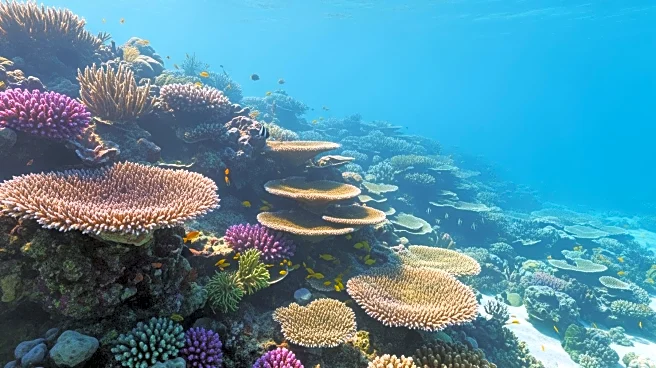What's Happening?
A new study from the University of Queensland reveals that the Great Barrier Reef is facing a 'grim future' with rapid coral decline expected by 2050. However, parts of the reef may recover if global warming
is kept below 2C. The study used modeling to simulate coral lifecycles, finding that some species are better at adapting to warmer oceans. The research emphasizes the importance of curbing carbon emissions to allow coral recovery and prevent near-collapse of the reef.
Why It's Important?
The findings highlight the critical role of global climate policy in preserving one of the world's most biodiverse ecosystems. The Great Barrier Reef's health is a barometer for the broader impacts of climate change on marine environments. Successful mitigation of warming could preserve biodiversity and sustain the reef's ecological and economic benefits. The study underscores the urgency for international cooperation to meet climate targets and protect vulnerable ecosystems.











